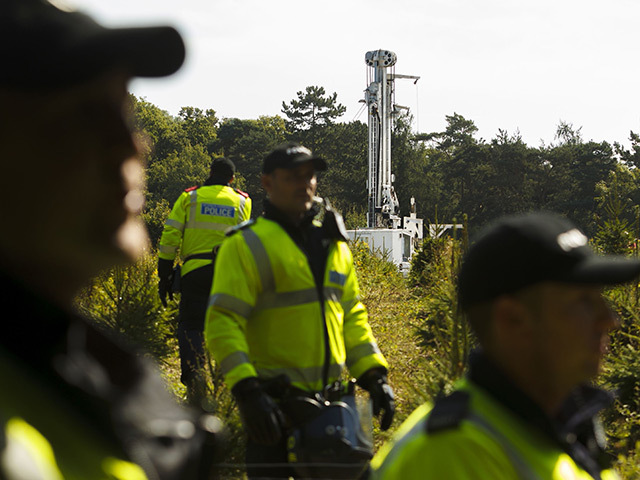
Energy experts have criticised the Government’s “premature” assertion that fracking for shale gas would transform Britain’s energy supplies.
While gas can be a “bridging fuel” in the shift to a low-carbon economy, it would not be long before the fossil fuel became part of the problem rather than the solution in helping tackle climate change, they warned.
The Government has said it is going “all out for shale”, suggesting the unconventional gas source in the UK could bring down energy prices, improve security of supplies, and boost the economy in areas it is found such as the north west of England.
But experts from the UK Energy Research Centre said the Government should not bank on shale.
Professor Jim Watson, of the University of Sussex, said there was nothing wrong with exploring for shale gas as long as it was compatible with policy goals, including cutting emissions to tackle climate change.
But he dismissed suggestions there could be a second industrial revolution based on shale in the near future as not substantiated by evidence.
“I think where the Government has gone wrong is talking this whole thing up, in the early days when it first came on the agenda, as if it was going to reduce consumer bills and tackle energy security problems in a substantial way any time soon.
“That was very premature and shale developers played a part in talking it up,” he said.
Professor Mike Bradshaw, of Warwick Business School, said it was now recognised that shale gas in Europe was not a game changer.
“Shale gas is being positioned by some as a solution to our security of supply problem, but an increasingly realistic evaluation of shale gas potential in the UK would say that it probably has a part to play, but it’s a modest part, and certainly unlikely to compensate for declining UK continental shelf production.”
Christophe McGlade of University College London said: “There’s no evidence there will be a huge boom in the UK. Absolutely explore but stop banking on it being plentiful and cheap.”
They were speaking as they launched reports on the challenges for the UK in the global gas market and whether gas could play a role as a transition fuel as the world shifted towards a low-carbon economy.
Prof Bradshaw said there was a role for gas to be a “bridge” to a clean energy system by replacing more polluting coal-fired power stations.
But without technology to capture the emissions from gas-fired power plants, gas consumption would have to peak globally and start to fall dramatically by the middle of the next decade if emissions are to be curbed enough to prevent dangerous climate change.
Even with carbon capture and storage (CCS) technology, gas will play a stronger role as a transition fuel in some parts of the world than others.
In the UK, there will be limited opportunity to replace coal with gas, as the UK’s dash for gas since the 1990s means the country is already “well into our gas bridge”, Prof Watson said.
Gas consumption in the UK has already peaked, and new gas-powered stations will be used as back-up for intermittent supplies of renewable energy.
The UK’s power sector needs to be decarbonised by 2030, with the rest of the world not far behind, to tackle climate change.
Moving on from using gas, two-thirds of which is used for heating homes and in industry, will require measures such as low-carbon heating systems, considering district heating schemes and reducing demand by improving energy efficiency.
Prof Watson criticised the Government’s move to scale back energy-efficiency schemes last year in response to concerns about consumer bills, saying: “They should have done the opposite, should have increased the ambition of these projects, not reduced them.”
The experts also called for more investment in gas storage schemes to protect consumers against short-term supply disruption and price rises as the UK’s dependence on gas imports continues to grow.
Recommended for you
